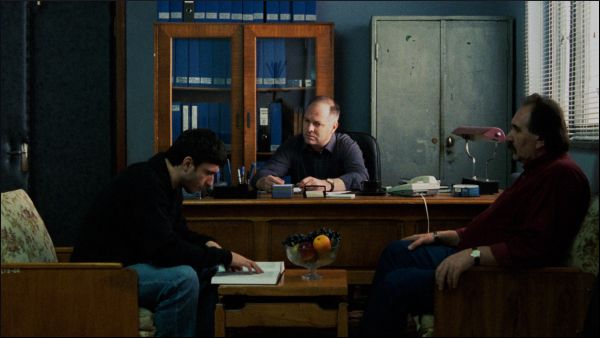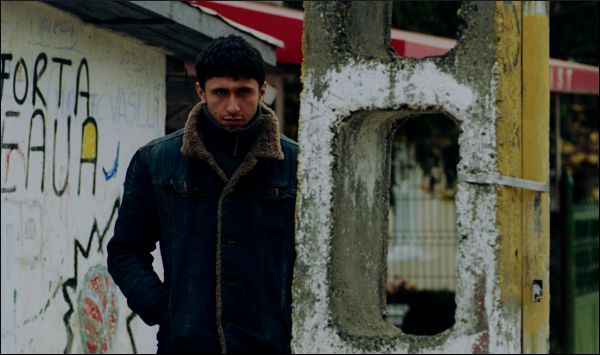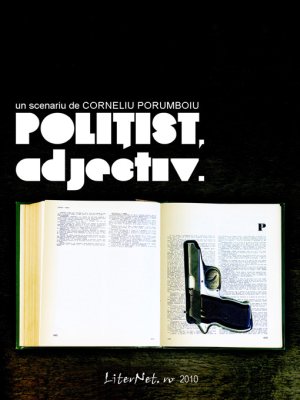Directed by Corneliu Porumboiu and released in 2009, Politist, Adjectiv (Police, Adjective) is a highly acclaimed Romanian film. It won the Jury Prize at the 2009 Cannes Film Festival and was nominated to represent Romania for the 2010 Academy Awards. Unlike conventional police movies, which deal with speedy cars and highly dangerous delinquents, Police, Adjective is made out of a completely different kind of alloy: it is an intense, subversive movie about the power of language, inviting reflection on word usage.
It tells the story of Cristi, a policeman working on a drug case. This is not, however, one of those huge drug cases policemen usually deal with in movies, but rather a petty one, involving some high schoolers smoking and dealing pot. Cristi must follow the supposed dealer across Bucharest, collecting discarded cigarette butts and getting enough damning evidence to finally amount to a prison sentence. He finds this job exceedingly boring, enervating, and pointless. Why would anyone want to send a teenager to jail and ruin his life just because he made a stupid mistake and pushed some marijuana? This is the question Cristi cannot get out of his mind, and as he starts to question his profession he becomes increasingly frustrated and also puts his job at risk.
"Police, Adjective is an intense, subversive movie about the power of language, inviting reflection on word usage."
This slow-paced movie introduces us to a fascinating and highly intellectual world, where words and their meanings become the main subject matter. Cristi refuses to arrange an arrest on the grounds that he doesn’t want to ruin the teenager’s life and have it hang on his “constiinta” (conscience). He enters into a conflict with his superior, Captain Anghelache, and a debate on the meaning of the word “constiinta” ensues. This is probably the most memorable scene, as well as the one that ends the movie.

Antagonised by Cristi’s blunt refusal to follow orders and further aggravated by his explanation, Anghelache asks Cristi to define the word “constiinta.” Rather clumsily, Cristi defines it as, “Ceva ce pe mine… acel lucru care ma opreste sa fac ceva rau, ce as regret dupa” (Something within me… that thing that prevents me from doing something bad, that I would regret afterwards). Upon hearing this explanation, the superior asks his personal assistant to bring him a dictionary, which she does. She is then told to give Cristi a copy and buy a new one for the office. When she asks if she should use money from the petty cash fund to purchase it, she is instead asked to define conscience. She responds, “E atunci cand crezi in Dumnezeu” (It’s having faith in God). Anghelache retorts, mordantly, that she should indeed take money from the petty cash fund, since she needs a dictionary too. Later, we watch as Cristi reads the dictionary definition of words like “constiinta” and “politist” (policeman), both of which entail respecting the law. The underlying conflict is, thus, between what one thinks is right and what the law says is right. In the end, words become instruments of power and those who wield it control language and ascribe definitions and meanings to it.





